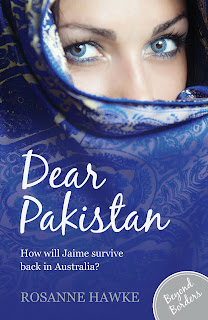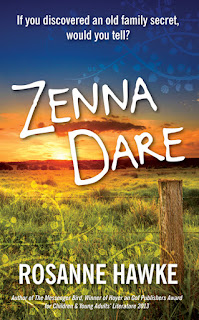Most Thursdays this year we will be interviewing one of the members of Christian Writers Downunder – to find out a little bit more about them and their writing/editing goals.
Today’s interview: Cecily Paterson
Question 1: Tell us three things about who you are and where you come from.
- I spent most of my childhood in Pakistan, where I went to a British school, and then an international boarding school in the Himalayas, so I’ve had some pretty outlandish and exotic family holidays, including a road trip to the border of China at 16,000ft altitude.
- These days I’m a work-from-home freelance writer and editor, which I combine with being a stay at home mum of four kids, although one of them grew up recently and went off to uni, so technically I’m only a stay at home mum of three kids.
- When I was 40, I took up learning the cello, which turned out to be a hard and frustrating, yet rewarding and enjoyable experience. My pleasures and pains in this endeavour have contributed plenty of life-lesson-type-wisdom fodder for my slightly neglected blog. (www.cecilypaterson.com)
Question 2: Tell us about your writing (or editing/illustrating etc). What do you write and why?
Mostly I write what I call ‘bravehearted books for girls’. It’s realistic fiction for readers age 10-14 (upper middle grade and lower YA) and as all my main characters are female, I tend to pitch for female readers (although boys have been known to read and enjoy my stories.) My eighth novel, Lola in the Middle is being released by Wombat Books on 15 May this year. I’m in the process of re-releasing my Invisible series with adorably gorgeous new covers.
My first two books were a biography, Never Alone, about a man who was rescued from an orphanage in Israel and brought up by a single Australian missionary woman, as then a memoir of the five years following my son’s diagnosis with autistic spectrum disorder, Love Tears & Autism.
Currently I’m the writer for a collaborative project with two friends who are not writers, but who have 9 fantasy/sci-fi/historical ‘gaslamp’ stories in their heads. We’re halfway through book 2. It’s fun to write things I wouldn’t normally.
In term 3 of this year I have plans to tackle a biblical fiction piece, based on the story of the mother of the man born blind from John 9.
On another front, I really enjoy teaching writing. I have an online Write Your Memoir course and a blog full of writing resources at The Red Lounge for Writers. (www.redloungeforwriters.com) I’m currently cooking up a short course for fiction writers on how to nail Point of View. It’s something that seems easy, but isn’t always, and it can really let down our writing if we muck it up. Get right, though, and it’s the invisible ‘it’ factor that makes a book really shine.
Question 3: Who has read your work? Who would you like to read it?
Who has read my work? Not nearly enough people, as far as I’m concerned! Ha ha. Don’t we all feel that way? But seriously… every time I think about giving up writing, I get a beautiful email from someone (a young teenager mostly) who tells me how much my book has meant to them, and how I shouldn’t ever stop writing. It’s lovely. I always write back and tell them they are my current favourite person in the world – which is true. And I don’t stop writing. But I do find the whole process of finding a large and consistent audience slow, tedious and discouraging.
Who would I like to read my work? Every girl in every English-speaking country who is inclined to read, who enjoys realistic fiction, who’s between 10 and 14. How’s that for being both specific and ambitious? One of my other dreams is to get my books into every public library in Australia. (If you like my stuff, you could suggest to your library to purchase it. Thanks.)
In terms of the Red Lounge for Writers, I’d love everyone who’s thinking about writing a memoir, or partway through the task, to look at my course. It’s helped quite a few beginner writers so far, and I think it could help more.
Question 4: Tell us something about your process. What challenges do you face? What helps you the most?
My process is mostly this: sit down, start typing. Don’t get up until your word count is done.
That’s not quite all there is to it, but it’s the most important part. I have four and a half days per week, from 9am to 3pm, that I can use for my writing and promotional work, and any freelance projects I have on. It’s technically only 25 hours, once you take out breaks. I plan to write on three of those days, and I attempt to get 3000 words onto the screen per day, so 9000 words a week.
Story planning is very important for my work: I’m definitely a ‘plotter’ rather than a pantser, mostly because my time is so limited that I like to know exactly where I’m going before I start, so as to be most efficient with the words I write.
I lose time for a few reasons: first, I get sick every 6-8 weeks with what I call an energy crash. (These started when I had glandular fever 29 years ago and lay me low for two to three days at a time. After long naps and a lot of ‘bed’ time, I get up and I’m fine, but they take their toll on my writing.)
Second, I am SO easily distracted, it’s almost laughable. I have a mantra for myself: 45 seconds. Research shows that we distract our own brains every 45 seconds. If I can last longer than that, I’ll have resisted the urge to get sidetracked and can keep on going.
Third, sometimes I get lonely as a writer. I sit here all day in my laundry (seriously… I divided my laundry in half and put my desk is in one end) and talk to no one. It helps to have a quick online chat here and there with other lonely writers.
What helps me is to visualize the end result—the published book. I think I like ‘having written’, rather than writing itself. Also, food and drinks help. My preferred beverages and snacks to get me through are decaf tea (lots of it), dark chocolate and a bowlful of frozen vegetables.
Question 5: What is your favourite Writing Craft Book and why?
I have three.
- Save the Cat, by Blake Snyder. Yes, it says it’s about screen-writing, but really it's about story structure. It's funny, it's clear and it'll help you plan out your memoir or your novel and get a clearer idea on exactly what you're writing.
- Story Genius, by Lisa Cron. Lisa’s the genius in laying out so clearly exactly what the emotional hook of your writing needs to be, and exactly how to do it.
- Understanding Show, Don’t Tell (and really getting it) by Janice Hardy. This book promises exactly what it delivers.
Question 6: If you were to give a shout-out to a CWD author, writer, editor or illustrator – who would they be?
Kristen Young is working super hard to finish book 2 of her trilogy that she was signed with Steve Laube. Keep that word count going!
Penny Reeve has been a tremendous support to me in the last year or so, and she writes great books too. Definitely worth a read.
I can’t forget Raewyn Elsegood, who is a powerhouse in organizational prowess. She pulls together the Omega Writers Conference at great cost to her own time and energy and gives so expansively and generously to others. It’s almost impossible to over-appreciate her service to Christian writers in Australia.
Question 7: What are your writing goals for this year? How will you achieve them?
Four books. Total word count: 285,000. I’m on track so far. Like I said, bottom on chair, hands on keyboard.
Question 8: How does your faith impact and shape your writing?
I always feel weird about this question. We don’t ask car mechanics how their faith shapes the way they work on their cars, or baristas how their faith affects the coffee they make. I’m trying to make writing work for me as a job (I’d certainly like to write full time, for a reasonable amount of money … it’s not happening yet, but I keep trying). I don’t have a direct ‘calling’ to tell specifically Christian stories and I am writing for the general market. However, as my faith affects the way I live my life in private and public, it shapes what and how I write. I literally can’t write anything I feel uncomfortable with, in terms of sexual suggestiveness or violence. Instead, I like to put out positive, yet realistic stories for children embedded with hope, justice and mercy. As a Christian, I’m called to put good into the world, so I write things that I think will benefit people, or at the very least, not take them to dark places.


























